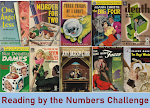After what seems like forever, I have finished Dante's The Divine Comedy II: Purgatory (trans by Dorothy L Sayers). This was a much more difficult read for me. First of all, there is less action. In Hell, there is constant movement from level to level and Virgil and Dante are continually observing punishment in action. There is also, of course, the horrible fascination with watching the punishment fit the crime. Because Hell is set in eternity, there is no time and therefore no time limit on action.
In Purgatory, the movement is less and, in fact, is even limited by the passing of time. Souls working their way through Purgatory are not allowed to move upward on the mountain at night, so Dante and Virgil are forced to stop several times on their journey. Purgatory was also a bit more challenging for me, a Protestant, since I was not familiar with the doctrine. Sayers does an excellent job explaining the doctrine of Purgatory in the introduction and clarifying some mistaken notions that many have. Again, without her introductory passages and excellent notes, I would have been lost.
So far, I would say the Divine Comedy is a beautifully done allegory representing the journey of the soul from sin to knowledge of and repentance of that sin to the eventual acceptance into Heaven. A bit difficult for those of us who aren't inclined to the Classics, but lovely poetry and a well-executed translation go a long way to making it more palatable. Three and a half stars out of five.
Sunday, September 26, 2010
Subscribe to:
Post Comments (Atom)






























2 comments:
Wow. I seriously respect you, not just because you actually made it through both of those books (which is pretty darn impressive) but also because you're honest enough to give Dante a rating of less than five stars.
Glad to know this one includes notes - footnotes and appendices are vital to me when I read books like this. :)
Post a Comment